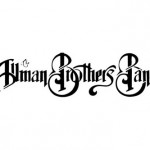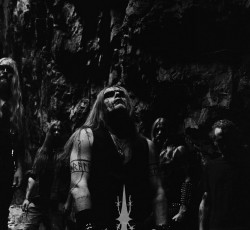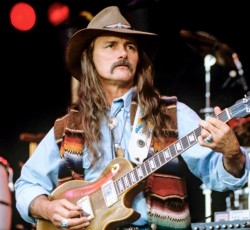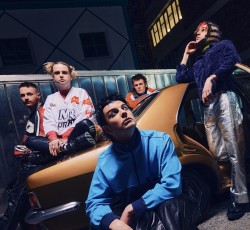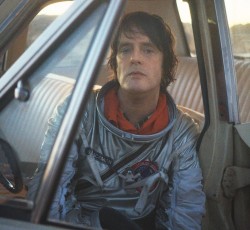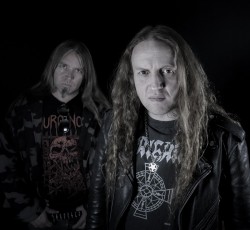Rock Culture #10: Forrester Savell
"Rock music is so broad these days, it's fairly easier to define something as rock if it has a energetic drum beat and some noisy guitars"
15/05/2013 @ 12:32
With no need for a big introduction it's safe to say that Forrester Savell is one of the most important producers in rock music today. He is responsible for a series of exceptional sounding albums and has to do with almost all the breakthrough acts of the modern Australian rock scene, being the hidden link between them.
The role of a producer, his way of working, the approach of every project and his opinion on what makes a band differ from the rest are among the topics that were discussed and presented in this interview.
For more information about the projects he’s been involved visit his site: www.forrestersavell.com
 During the last few years you’ve made quite a name as a producer in rock music. How did you decide to become a producer and especially at such a young age?
During the last few years you’ve made quite a name as a producer in rock music. How did you decide to become a producer and especially at such a young age?
It started while I was at university where I was studying sound design. I realized I really enjoyed creating music and working with musicians. Having access to studios and recording equipment allowed me to satisfy that creative urge. Bands were eager to label me producer on their recordings. Slowly I built up the confidence and experience in a creative environment, enough to call myself a producer.
Usually musicians turn to producers just like football players turn to coaches. Were you playing music before?
Yes, but not as a professional and barely enough to call myself a musician! I did however play a lot at home, experimenting with different instruments, recording myself to cassette decks & my PC. I started with drums at school and soon realized, that to get greater satisfaction from my own musical creations, I needed to learn other instruments. Through the years I’ve tried to dabble in as many contemporary instruments as possible, so as to be able to understand & communicate with the musicians I record.
How do you see the role of a producer and how do you approach the bands you're working with?
The role of a producer is someone who collaborates with an artist in an essential role to create a musical work. It's pretty vague, but essentially anyone who contributes or has an influential opinion to the overall artistic direction of a musical work could be considered a producer. My role as a producer is very hands on, which is generally expected from the artists I work with. It will change from project to project but I will usually work with a band from the writing stage, helping choose songs & arrangements, through to engineering & mixing the band.
 There are definitely different approaches when we are talking about the role of a producer. Some just stick to the technical side of it (making the right sound), while some intervene to the music and change the whole sound of the band. Where do you stand?
There are definitely different approaches when we are talking about the role of a producer. Some just stick to the technical side of it (making the right sound), while some intervene to the music and change the whole sound of the band. Where do you stand?
It really depends on the artist, but usually I will try to identify what makes an artist exciting and original and try to develop this. I'm of the opinion that anything can change to get a better result and I have no problem suggesting or considering ideas and changes to an artists sound if it creates something interesting.
In that terms, can someone like Rick Rubin really be considered as a producer or would a term like product manager be more precise?
I honestly can't comment on what he is or does, as I haven't seen first-hand how he works. I have heard stories, but I feel that if he has developed a way of interacting with bands to get great results, it should not deny him the title of producer.
 Who is your favorite producer and how have other producers influenced your job?
Who is your favorite producer and how have other producers influenced your job?
I honestly don't have a favourite producer. I am definitely heavily inspired by some of the great rock producer/engineers Alan Moulder, Dave Sardy, Brendan O'Brien etc. I am even more blown away by self-producing electronic artists too. Amon Tobin, Shpongle, NIN.
Let's talk about your productions. Which ones would you point out as the most important so far and why?
Karnivool - "Themata" would have to be one of the most important albums I've made, purely because it was the first album I made, or was able to make, where we were free to be completely creative and had minimal time constraints. As most of the album wasn't recorded in a studio, we spent as much time on it as we needed to get the sounds and vibe we were after. The Siren Tower - "A History Of Houses" is another important record for me, as it had great scope and was a step in a different direction for me, a chance to create different textures and emotions.
 You know, everyone is talking about the phenomenal sound of Karnivool's "Sound Awake". How did you manage to create this sound? Give us a few details on how you worked on it and tell us what you believe that makes its sound so special...
You know, everyone is talking about the phenomenal sound of Karnivool's "Sound Awake". How did you manage to create this sound? Give us a few details on how you worked on it and tell us what you believe that makes its sound so special...
We planned to try to make this album more organic than the previous Karnivool album. There was nothing overall that I could suggest that makes it what it is, but just a combination of lots of small choices. I planned to use as much room sound in the drums as I could, so I paid special attention to their placement & sound while tracking. Two of the songs were recorded in a much bigger space, live with the bass amp in the actual drum room ("Goliath" & "Deadman"). This meant that the takes just had to be great and we were limited to the amount of editing that went on. We also took this attitude for the album as a whole, trying to minimize the amount of neatening, leaving a rawness in the playing that we definitely hadn't done on the previous record. I also remember distinctly trying not to add a lot of top-end to the EQ in the mixing process, which is why the record has a certain darkness to it.
 Correct me if I am wrong but the album with the most commercial success that you've produced is "This Is The Warning" by Dead Letter Circus. What it takes to make commercial success in rock music today?
Correct me if I am wrong but the album with the most commercial success that you've produced is "This Is The Warning" by Dead Letter Circus. What it takes to make commercial success in rock music today?
Dead Letter Circus have done really well with "This Is The Warning", having toured a few times through the US in recent years. I think there is a great energy in their music & I'd say most listeners really connect with Kim Benzie's melody and lyrics. The band also has a very distinct sound which makes it easier for listeners to identify the band and connect with the music whenever they hear it.
So, now what are you up to? What releases that you are working on should we be waiting?
Right at this moment I'm working with The Butterfly Effect on some new material with their new singer. It's heavier, rawer and awesome. Also, while I'm here, I am doing pre-production with Dead Letter Circus for their second album which we start recording in a month. Look out for a cool new track from Flynn Gower (COG) too.
There is a growing scene in Australia with fantastic bands coming out and you have collaborated with most of them. Is it kind like the 'new Seattle'? How do you see it evolving from here?
Yes definitely there have been some fantastic bands evolve through the Australian rock scene. As I get older and can view the musical transitions with hind-sight, it gets easier to see where trends have developed, but where it goes from here is anyone's guess though!
I am pretty sure that you must receive a lot of offers from around the world to handle the production of new albums. Do you have any standards that a band should have to collaborate with you?
I request demos from any potential bands, and usually this will dictate whether the 'standards' are met for me to collaborate.
Have there been any well known bands that have approached you to work with them?
Ha, I guess it depends on the definition of well known. If you recognize any in my history then I said yes.
 Which bands would be a real dream and a challenge to work with?
Which bands would be a real dream and a challenge to work with?
Every album I work on is a challenge in its own way, which is why I enjoy this job. You never really know how difficult a band will be to work with until you're in the process. I always find that the most enjoyable experiences are when I'm working with passionate, motivated and creative people, but they're also often the most challenging people to work with!
If you could pick up an album from the past that you would like to have been the producer, which one would it be and why? What would you change on its sound?
"The Downward Spiral" by the Nine Inch Nails would have to be my pick of any album to be involved with. As far as changing its sound... I don't know that I would!
How do you see rock music today? What's the most refreshing and innovating thing you've heard lately?
Rock music is so broad these days, it's fairly easier to define something as rock if it has a energetic drum beat and some noisy guitars. The most refreshing thing I've heard lately is an artist Jack Weaving, who's project I had the pleasure of working on. He's mixing a combination of hip hop beats, live drums and rock guitars into something that's really innovative.
I know you've heard some samples of Greek rock bands. What suggestion would you make to them so as to have more chances for international success?
While I think creating something fresh and new is a good aim, just providing something with passion and vibe is enough to grab peoples attention, even if it is just reproducing a time-worn sound.
Chris Karadimitris
The role of a producer, his way of working, the approach of every project and his opinion on what makes a band differ from the rest are among the topics that were discussed and presented in this interview.
For more information about the projects he’s been involved visit his site: www.forrestersavell.com
 During the last few years you’ve made quite a name as a producer in rock music. How did you decide to become a producer and especially at such a young age?
During the last few years you’ve made quite a name as a producer in rock music. How did you decide to become a producer and especially at such a young age?It started while I was at university where I was studying sound design. I realized I really enjoyed creating music and working with musicians. Having access to studios and recording equipment allowed me to satisfy that creative urge. Bands were eager to label me producer on their recordings. Slowly I built up the confidence and experience in a creative environment, enough to call myself a producer.
Usually musicians turn to producers just like football players turn to coaches. Were you playing music before?
Yes, but not as a professional and barely enough to call myself a musician! I did however play a lot at home, experimenting with different instruments, recording myself to cassette decks & my PC. I started with drums at school and soon realized, that to get greater satisfaction from my own musical creations, I needed to learn other instruments. Through the years I’ve tried to dabble in as many contemporary instruments as possible, so as to be able to understand & communicate with the musicians I record.
How do you see the role of a producer and how do you approach the bands you're working with?
The role of a producer is someone who collaborates with an artist in an essential role to create a musical work. It's pretty vague, but essentially anyone who contributes or has an influential opinion to the overall artistic direction of a musical work could be considered a producer. My role as a producer is very hands on, which is generally expected from the artists I work with. It will change from project to project but I will usually work with a band from the writing stage, helping choose songs & arrangements, through to engineering & mixing the band.
 There are definitely different approaches when we are talking about the role of a producer. Some just stick to the technical side of it (making the right sound), while some intervene to the music and change the whole sound of the band. Where do you stand?
There are definitely different approaches when we are talking about the role of a producer. Some just stick to the technical side of it (making the right sound), while some intervene to the music and change the whole sound of the band. Where do you stand?It really depends on the artist, but usually I will try to identify what makes an artist exciting and original and try to develop this. I'm of the opinion that anything can change to get a better result and I have no problem suggesting or considering ideas and changes to an artists sound if it creates something interesting.
In that terms, can someone like Rick Rubin really be considered as a producer or would a term like product manager be more precise?
I honestly can't comment on what he is or does, as I haven't seen first-hand how he works. I have heard stories, but I feel that if he has developed a way of interacting with bands to get great results, it should not deny him the title of producer.
 Who is your favorite producer and how have other producers influenced your job?
Who is your favorite producer and how have other producers influenced your job?I honestly don't have a favourite producer. I am definitely heavily inspired by some of the great rock producer/engineers Alan Moulder, Dave Sardy, Brendan O'Brien etc. I am even more blown away by self-producing electronic artists too. Amon Tobin, Shpongle, NIN.
Let's talk about your productions. Which ones would you point out as the most important so far and why?
Karnivool - "Themata" would have to be one of the most important albums I've made, purely because it was the first album I made, or was able to make, where we were free to be completely creative and had minimal time constraints. As most of the album wasn't recorded in a studio, we spent as much time on it as we needed to get the sounds and vibe we were after. The Siren Tower - "A History Of Houses" is another important record for me, as it had great scope and was a step in a different direction for me, a chance to create different textures and emotions.
 You know, everyone is talking about the phenomenal sound of Karnivool's "Sound Awake". How did you manage to create this sound? Give us a few details on how you worked on it and tell us what you believe that makes its sound so special...
You know, everyone is talking about the phenomenal sound of Karnivool's "Sound Awake". How did you manage to create this sound? Give us a few details on how you worked on it and tell us what you believe that makes its sound so special...We planned to try to make this album more organic than the previous Karnivool album. There was nothing overall that I could suggest that makes it what it is, but just a combination of lots of small choices. I planned to use as much room sound in the drums as I could, so I paid special attention to their placement & sound while tracking. Two of the songs were recorded in a much bigger space, live with the bass amp in the actual drum room ("Goliath" & "Deadman"). This meant that the takes just had to be great and we were limited to the amount of editing that went on. We also took this attitude for the album as a whole, trying to minimize the amount of neatening, leaving a rawness in the playing that we definitely hadn't done on the previous record. I also remember distinctly trying not to add a lot of top-end to the EQ in the mixing process, which is why the record has a certain darkness to it.
 Correct me if I am wrong but the album with the most commercial success that you've produced is "This Is The Warning" by Dead Letter Circus. What it takes to make commercial success in rock music today?
Correct me if I am wrong but the album with the most commercial success that you've produced is "This Is The Warning" by Dead Letter Circus. What it takes to make commercial success in rock music today?Dead Letter Circus have done really well with "This Is The Warning", having toured a few times through the US in recent years. I think there is a great energy in their music & I'd say most listeners really connect with Kim Benzie's melody and lyrics. The band also has a very distinct sound which makes it easier for listeners to identify the band and connect with the music whenever they hear it.
So, now what are you up to? What releases that you are working on should we be waiting?
Right at this moment I'm working with The Butterfly Effect on some new material with their new singer. It's heavier, rawer and awesome. Also, while I'm here, I am doing pre-production with Dead Letter Circus for their second album which we start recording in a month. Look out for a cool new track from Flynn Gower (COG) too.
There is a growing scene in Australia with fantastic bands coming out and you have collaborated with most of them. Is it kind like the 'new Seattle'? How do you see it evolving from here?
Yes definitely there have been some fantastic bands evolve through the Australian rock scene. As I get older and can view the musical transitions with hind-sight, it gets easier to see where trends have developed, but where it goes from here is anyone's guess though!
I am pretty sure that you must receive a lot of offers from around the world to handle the production of new albums. Do you have any standards that a band should have to collaborate with you?
I request demos from any potential bands, and usually this will dictate whether the 'standards' are met for me to collaborate.
Have there been any well known bands that have approached you to work with them?
Ha, I guess it depends on the definition of well known. If you recognize any in my history then I said yes.
 Which bands would be a real dream and a challenge to work with?
Which bands would be a real dream and a challenge to work with?Every album I work on is a challenge in its own way, which is why I enjoy this job. You never really know how difficult a band will be to work with until you're in the process. I always find that the most enjoyable experiences are when I'm working with passionate, motivated and creative people, but they're also often the most challenging people to work with!
If you could pick up an album from the past that you would like to have been the producer, which one would it be and why? What would you change on its sound?
"The Downward Spiral" by the Nine Inch Nails would have to be my pick of any album to be involved with. As far as changing its sound... I don't know that I would!
How do you see rock music today? What's the most refreshing and innovating thing you've heard lately?
Rock music is so broad these days, it's fairly easier to define something as rock if it has a energetic drum beat and some noisy guitars. The most refreshing thing I've heard lately is an artist Jack Weaving, who's project I had the pleasure of working on. He's mixing a combination of hip hop beats, live drums and rock guitars into something that's really innovative.
I know you've heard some samples of Greek rock bands. What suggestion would you make to them so as to have more chances for international success?
While I think creating something fresh and new is a good aim, just providing something with passion and vibe is enough to grab peoples attention, even if it is just reproducing a time-worn sound.
Chris Karadimitris




















